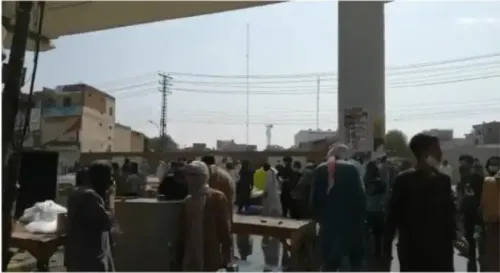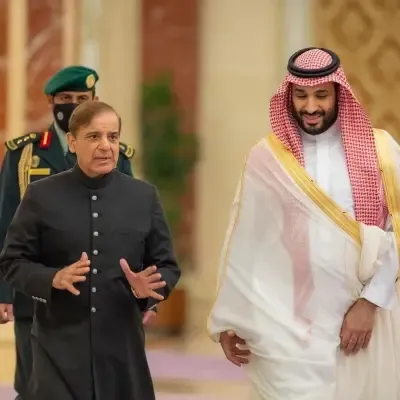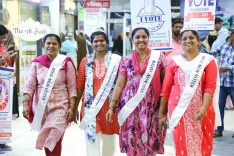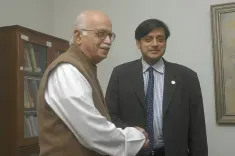Pakistan and Afghanistan Conduct JCC Meeting in Kabul Amid Tensions
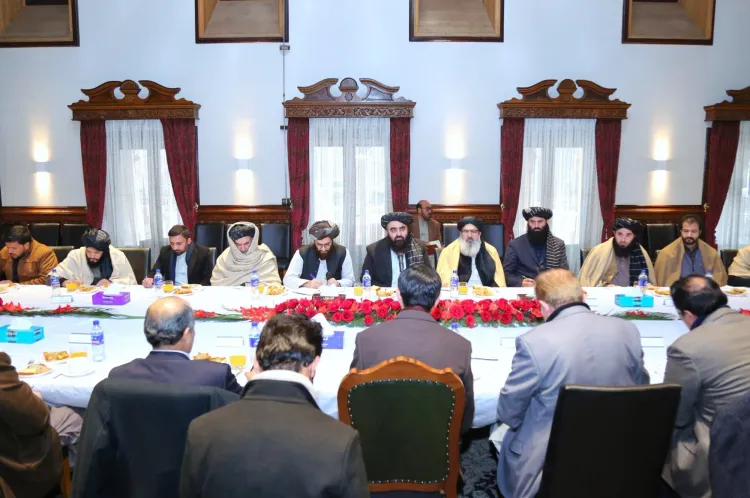
Synopsis
Key Takeaways
- Pakistan and Afghanistan held a JCC meeting for the first time in 16 months.
- Ambassador Sadiq Khan represented Pakistan in Kabul.
- Mullah Abdul Qayum Zakir attended the talks for the Afghan Taliban.
- Pakistan accused the Taliban of supporting militant groups.
- Afghan officials are lobbying to change Pakistan's repatriation policies.
Islamabad, April 16 (NationPress) The Special Representative for Afghanistan from Pakistan, Ambassador Sadiq Khan, arrived in Kabul on Wednesday for a one-day visit to engage in the second session of the Pakistan-Afghanistan Joint Coordination Committee (JCC) meeting, as Islamabad seeks to resolve border issues with its neighboring nation.
This JCC meeting marks the first such gathering in 16 months, with Pakistan looking to initiate high-level discussions to de-escalate tensions and normalize relations.
The Afghan Taliban will be represented by Deputy Defense Minister Mullah Abdul Qayum Zakir, a former Guantanamo detainee known for his aggressive stance and viewed as a formidable Taliban leader since Mullah Dadullah's demise.
These important discussions come at a time when Pakistan has accused the Afghan Taliban of providing support, funding, and safe havens to militant groups, including the Tehreek-e-Taliban Pakistan (TTP) and various Baloch militant organizations, who are responsible for attacks within Pakistan.
Conversely, Pakistan's unilateral decision to repatriate thousands of illegal Afghan immigrants and holders of Afghan Citizen Cards (ACC) has faced backlash from the Kabul regime, which has consistently urged Islamabad to reconsider this policy—a request that has been denied.
The Afghan Consul General in Peshawar, the capital of Khyber Pakhtunkhwa, is scheduled to meet with local media later today in an effort to persuade Pakistan to alter its stance on Afghan repatriation.
A delegation from Afghanistan's Ministry of Commerce and Industry is also expected to arrive in Islamabad today to engage in discussions with their Pakistani counterparts, aiming to enhance cooperation moving forward.
Leading this Afghan delegation is Minister Noor Uddin Azizi, who will be accompanied by representatives from various Afghan ministries including those for Economic Affairs, Foreign Affairs, and Agriculture.
Analysts emphasize that the latest talks between Pakistan and Afghanistan carry substantial importance, particularly as Pakistan has alleged that the Afghan Taliban supports anti-Pakistan factions, contributing to instability and violence within the country. Islamabad is also compiling evidence against the Afghan Taliban for allegedly supplying these militant groups with arms, purportedly remnants from the United States and NATO forces.



